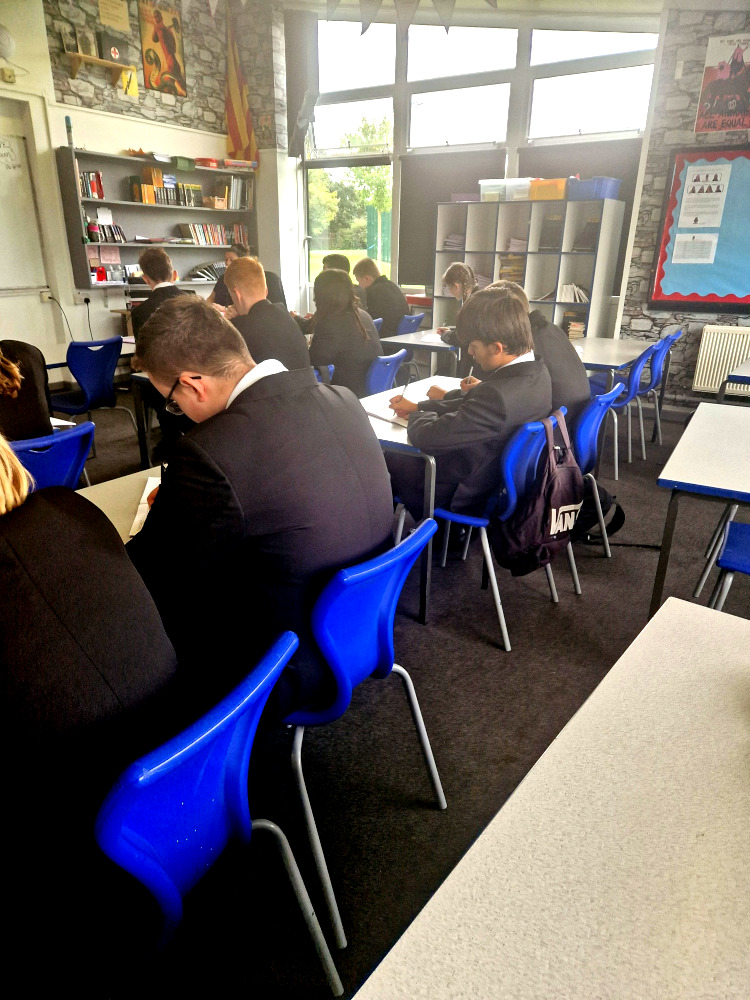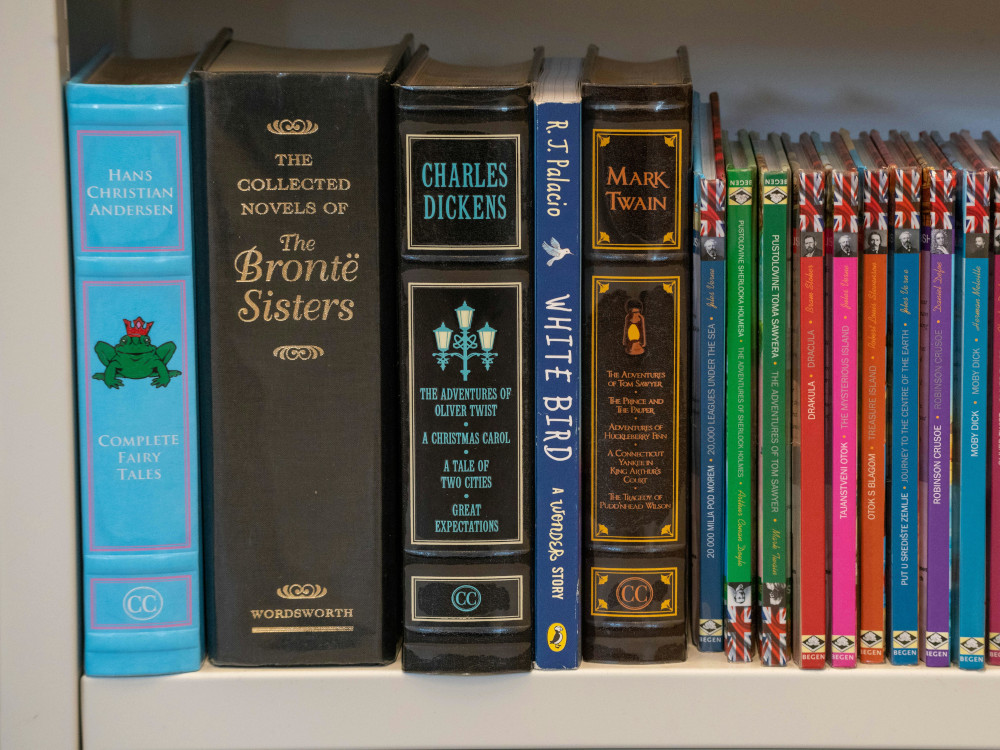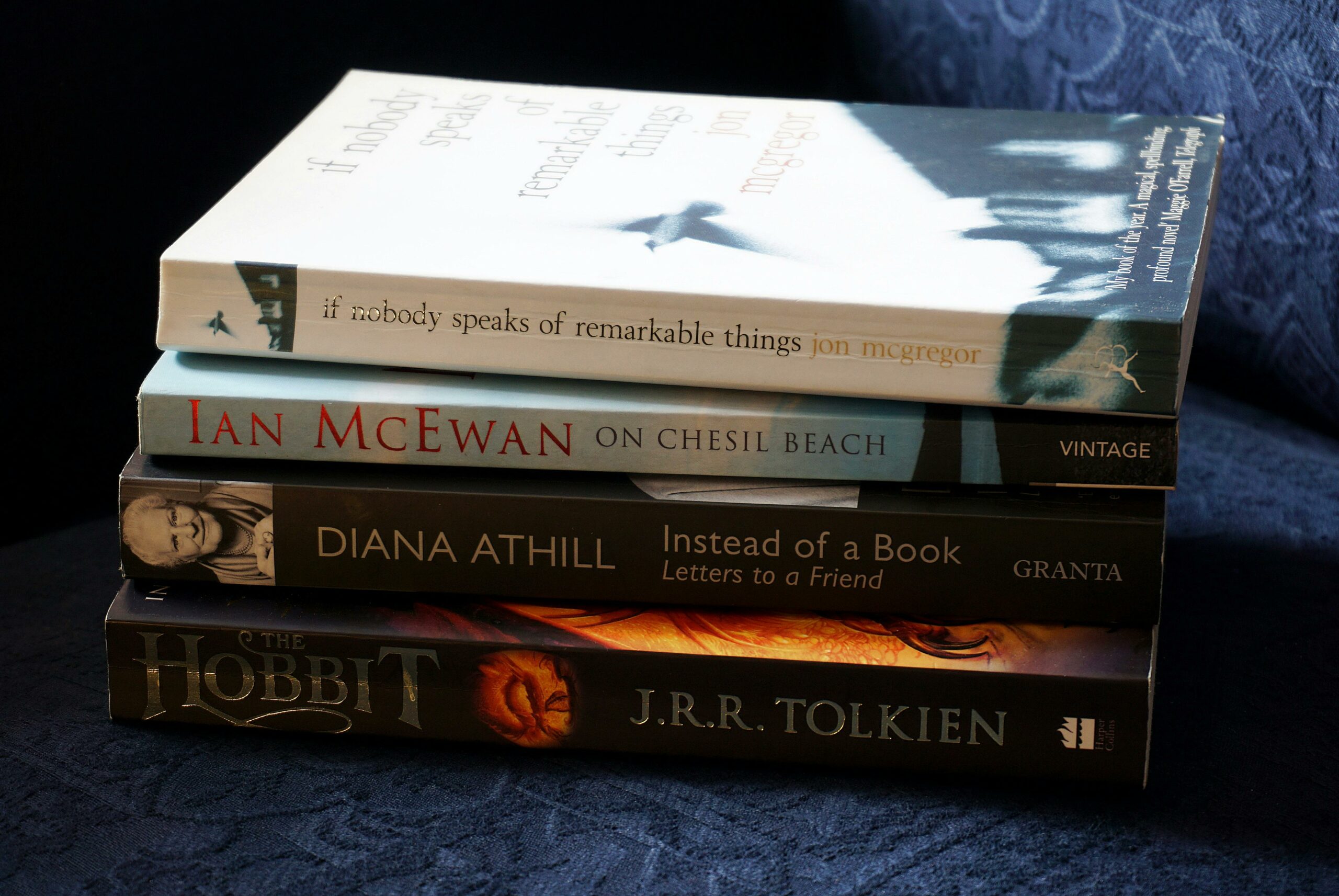English
English is a critical part of today’s education. We aim to help our learners develop into effective, articulate communicators, who have the skills to succeed in the 21st Century.
Our innovative approaches, including the use of ICT in the classrooms, means that we are able to prepare students for the challenges and opportunities they may face in their future.
English can be divided into three key aspects of reading, writing and speaking and listening. We want to make sure that our students develop high levels of literacy and communication skills in each of these areas, for everyday life. A key part of doing this is to harness their imagination and creativity. This helps to develop a culture of explorative curiosity and open-mindedness that inspires students with a passion for words and an appreciation of their own and other cultures.

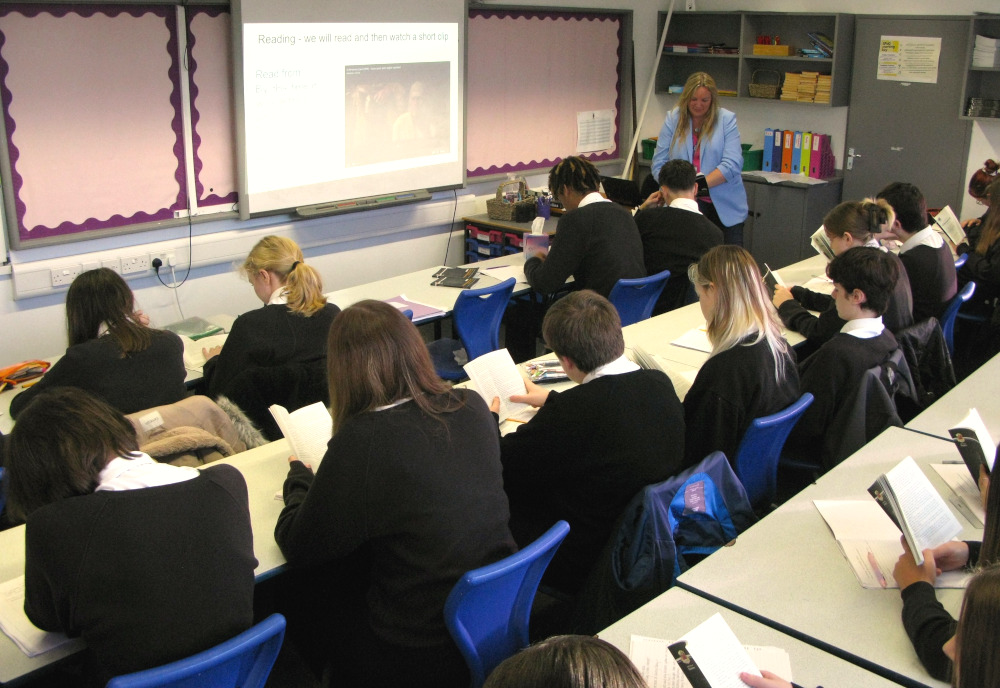
-
Our drive is to create independent learners who are willing to take risks and willing to try new things.
-
We aim to facilitate learning, through exploration and discovery, and encourage pupils and students to take responsibility for their own learning.
-
We want our learners to be cooperative, collaborative, reflective and able to self-evaluate. We will encourage them to do this through the creation of a supportive atmosphere that rewards effort as well as success.
-
Above all, we want to make sure our lessons are engaging and infuse our pupils with the enthusiasm and passion we feel for English.
I am looking for someone to share in an adventure…
– JRR Tolkien, The Hobbit
Key Stage 3
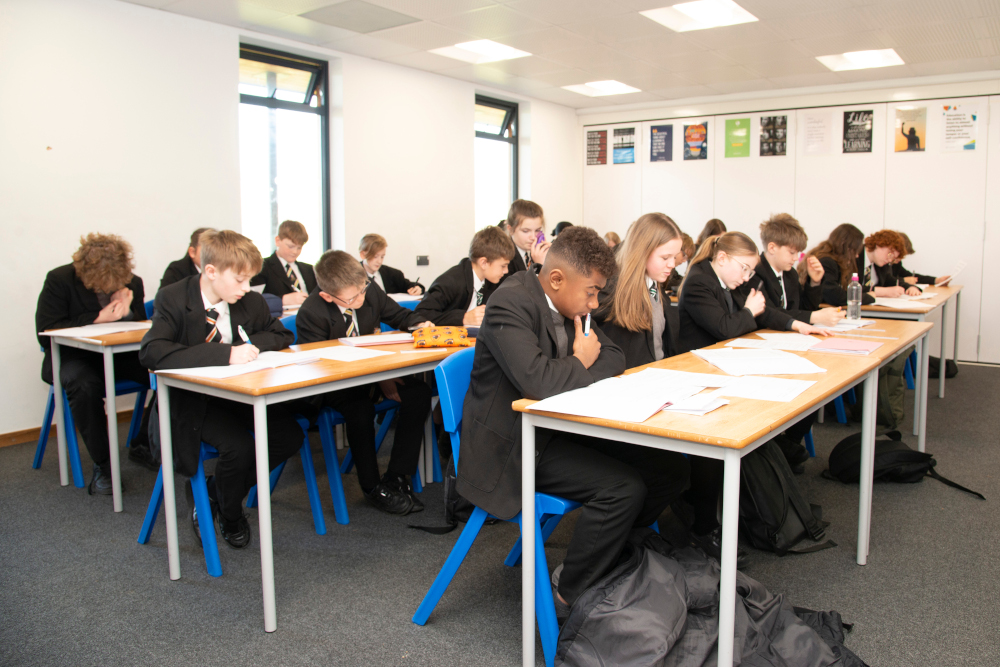
At Key Stage 3, students study a variety of units covering the new English curriculum.
In Year 7, students study a novel on the theme of Journeys and explore the exciting world of literary villains. They learn to write a persuasive speech before taking part in an inter-class debating tournament. They study 19th Century short fiction and study Dickens’ ‘Oliver Twist’ in the summer term. Throughout the year, they follow a structured programme of spelling, punctuation and grammar, as well as library-based reading lessons to help them to build upon their key skills from KS2.
These skills are consolidated in Year 8, where students study a novel that explores the theme of relationships as well as a selection of poetry in the ballad form. They study a Shakespeare play (‘The Tempest’ or ‘A Midsummer’s Night’s Dream’) whilst gaining an understanding of the context he was writing in. They examine great speeches of the past in order to create one of their own, which they perform in class. They also study a variety of short 19th and 20th Century fiction to continue their exposure to more challenging texts before GCSE.
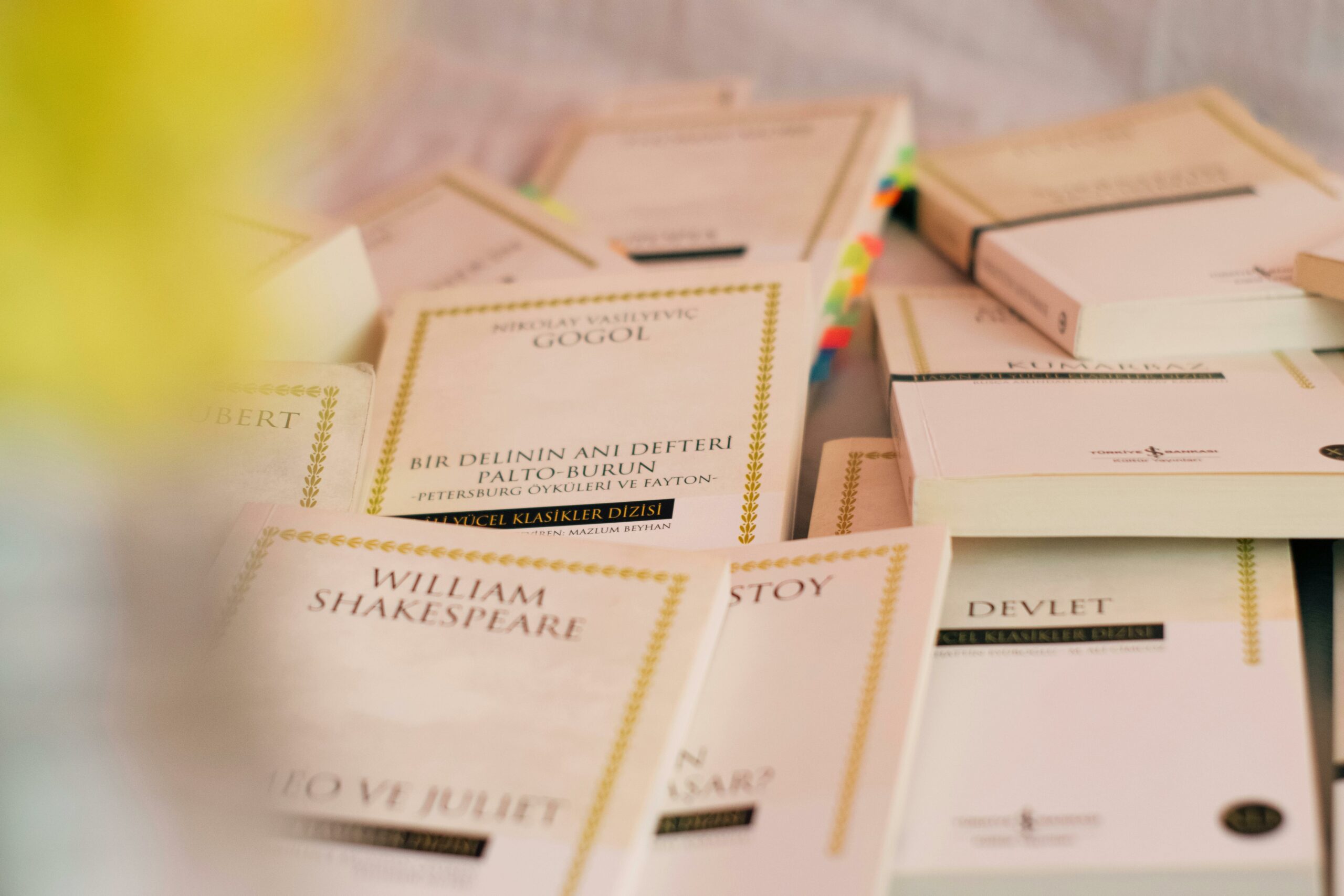
In Year 9, students consolidate the skills learned in Year 7 and 8 by exploring writing from other cultures (including poetry, short stories and a novel). They also study the Gothic genre, looking at its development over time, and a complete work by William Shakespeare. Non-fiction writing and debating complete the programme.
Key Stage 4
At Key Stage 4, all students follow the AQA GCSE English and GCSE English Literature course (2015 onwards). The course is assessed through 100% examinations: two for English Language and two for English Literature.
In Year 10, students begin the course with English Literature by studying the modern play ‘An Inspector Calls’ by J.B Priestley. Students are then introduced to English Language Paper 2: Writers’ Viewpoints and Perspectives. In the spring term, students will then study English Language Paper 1: Explorations in Reading and Creative Writing. They will also study some of the ‘Power and Conflict’ poems from the AQA Poetry Anthology. Near the end of Year 10, the students will sit the GCSE English exam, which they will then re-sit in Year 11. In the summer term, students begin to study, explore and discuss the 19th Century novel for English Literature ( ‘A Christmas Carol’ by Charles Dickens) as well as the remaining Power and Conflict poems. They will then sit an assessment for their Literature texts.
In Year 11, students start the autumn term with a play by William Shakespeare, typically ‘Romeo and Juliet’ or ‘Macbeth’. Once this is finished, students will focus on approaching the Unseen poetry and revise all of the texts they have studied in Year 10 and Year 11, in readiness for the GCSE English Literature papers. They will also revise Language Paper 1 and Language Paper 2, to prepare them for the GCSE English re-sit.
During the two-year course, students will prepare and give a speech on a topic of their choice, which forms the basis of their Spoken Language Accreditation. This is internally assessed, with students being awarded a pass, merit or distinction.
